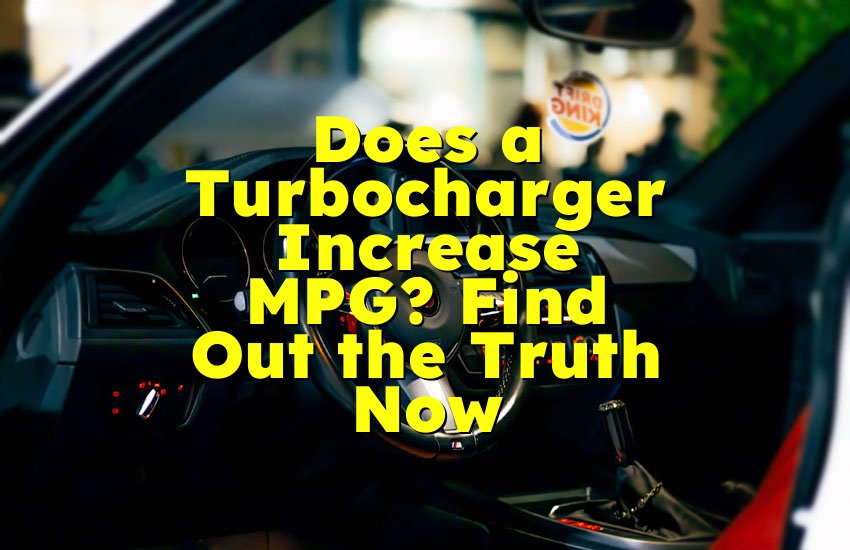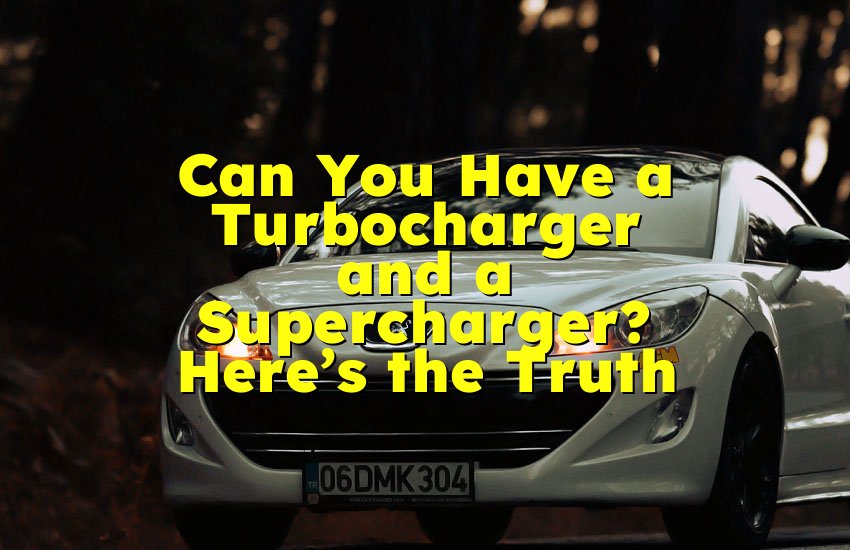As an Amazon Associate, I earn from qualifying purchases at no extra cost to you.
Fuel Injector Not Working Symptoms: Expert Guide
Strange rattling under the hood, a weird smell of fuel, and the car shaking like it just had too much coffee—sounds familiar? Many drivers ignore these little signs, thinking they will just go away. But when your fuel injector starts acting up, small clues quickly turn into big and expensive problems. Missing the early symptoms can leave you stranded on the road. Let's talk about what really happens when your fuel injector stops doing its job.
Fuel Injector Not Working Symptoms You Must Notice
Engine Misfires and Rough Idling
When a fuel injector fails, the engine does not get the right amount of fuel. This uneven supply causes the engine to misfire. A misfire feels like the car is shaking or stumbling while running. It happens because the air-fuel mix inside the cylinders is wrong. Too much or too little fuel leads to poor combustion.
A rough idle is another clear sign. You may feel vibrations when the car is at a stoplight. Instead of running smooth, the engine sounds weak and shaky. Many drivers confuse this with spark plug problems, but injectors are often the hidden reason. The sound may change when you press the gas pedal.
Sometimes, misfires happen only when starting the car in the morning. Cold engines show injector problems faster because fuel needs to flow perfectly for ignition. If the injector is clogged, it fails to deliver enough fuel. That is why the car may hesitate before warming up.
Ignoring misfires causes damage over time. The constant shaking stresses other engine parts. It also reduces fuel economy, as the car burns fuel unevenly. The best move is to check injectors as soon as you feel repeated rough idling or misfires.
- Engine shakes when idling
- Misfires when pressing gas pedal
- Morning starts feel weak
- Fuel economy drops
Strange Fuel Smell and Leaks
A bad fuel injector can leak. When it does, raw fuel escapes into places it should not. You may smell gasoline inside or outside the car. This smell is strong and noticeable. If it is inside the cabin, the injector is likely dripping fuel near the intake.
Leaking fuel is dangerous. Not only does it waste fuel, but it can also catch fire. A smell that lingers after you park the car is a warning sign. Many people spray air freshener to hide the odor, but that never solves the real problem.
Sometimes, you may see fuel spots under the car. This happens when injectors leak at the seal. Even if you cannot see fuel, the strong smell is often enough to confirm trouble. The smell usually comes right after driving, when fuel pressure is high.
When fuel leaks, the engine may also run rich. That means it burns more fuel than needed. You might notice black smoke from the exhaust or carbon buildup. In this case, fixing the injector not only stops the smell but also saves the exhaust system from damage.
- Strong gasoline smell in or outside
- Possible fuel puddles under the car
- Black smoke from exhaust
- High fuel use
Poor Acceleration and Power Loss
One clear symptom of a bad injector is weak acceleration. When you press the gas pedal, the car may hesitate. It feels like the engine is not responding as fast as it should. This happens because the injector does not spray the right amount of fuel at the right time.
Power loss is also common. You may notice the car struggles when climbing hills or carrying extra weight. This is especially frustrating on highways, where speed feels uneven. Sometimes, the car jerks when trying to speed up, which makes driving uncomfortable.
Bad injectors spray fuel in the wrong pattern. Instead of a fine mist, they release uneven drops. The engine cannot burn these drops properly, so power decreases. The car feels sluggish, and you may press the gas harder just to keep up.
Over time, constant power loss stresses the transmission as well. The engine works harder, but the output feels weaker. This reduces both performance and lifespan of connected parts. Fixing the injector quickly helps avoid extra repair costs.
- Sluggish acceleration
- Jerky movement when speeding up
- Weak climbing power
- Harder fuel demand on engine
Check Engine Light Turns On
Modern cars have sensors that detect injector problems. When the injector fails, the engine control unit (ECU) receives bad signals. This triggers the check engine light. Many drivers panic when they see it, but often the cause is a clogged or leaking injector.
The check engine light may flash during misfires. A steady light usually means a small but constant problem. Both should be checked soon. Ignoring the light makes small injector issues grow into bigger repairs.
Diagnostic tools can read injector-related error codes. These codes point to the cylinder with the bad injector. Mechanics use this to confirm if the injector is stuck, clogged, or leaking. Without scanning, it is easy to confuse injector problems with ignition or sensor issues.
If the light stays on, your car may also enter limp mode. This limits power to protect the engine. Driving in this mode is frustrating and unsafe on busy roads. Fixing the injector clears the light and restores normal driving.
- Check engine light flashing or steady
- Codes show fuel system errors
- Engine may enter limp mode
- Delayed response from engine
Poor Fuel Economy and Wasted Gas
Fuel injectors are designed to spray fuel efficiently. When they fail, fuel economy drops quickly. You may notice you are filling the tank more often. The car uses more fuel but gives less performance. This hurts your wallet over time.
A clogged injector can make the engine run lean, meaning not enough fuel is burned. This forces the engine to work harder. On the other hand, a leaking injector makes the engine run rich, meaning too much fuel is wasted. Both situations reduce mileage.
Poor fuel economy is easy to miss at first. Many drivers blame gas prices or long drives. But if you see a clear drop without changing driving habits, injectors are a likely cause. Tracking mileage helps catch the issue early.
Fixing injectors restores fuel efficiency. Clean spray patterns burn fuel better, giving smoother power and fewer trips to the pump. Even small improvements save money in the long run.
- More fuel stops
- Mileage drops suddenly
- Engine runs lean or rich
- Wallet feels lighter
Hard Starting and Stalling
A failing injector often causes hard starts. The car cranks longer before firing up. This happens because the cylinder is not getting enough fuel at startup. Cold mornings make this even worse.
Sometimes the engine starts but stalls right away. Without steady fuel, the engine cannot stay running. This can leave you stuck at a gas station or parking lot. Stalling feels random, but injectors are a common root cause.
Injectors that leak cause the opposite issue. Fuel seeps into the cylinder overnight. In the morning, the engine floods with too much fuel. This makes it harder to start, as the plugs get wet. Both clogged and leaking injectors cause starting troubles.
Regular cleaning helps prevent this. If the problem keeps repeating, replacement may be needed. Hard starts and stalls are not just annoying, they signal that your injector is failing fast.
- Long crank before engine starts
- Engine stalls after starting
- Flooding from leaky injectors
- Cold starts become difficult
Final Thoughts
A fuel injector that is not working will not fix itself. Ignoring the signs only makes things worse. From weak starts to poor fuel economy, the symptoms are clear. Pay attention early, and you save money, time, and stress later. A healthy injector means a smooth, safe, and efficient drive.
| Symptom | What You Notice | Why It Happens | Risk if Ignored |
|---|---|---|---|
| Misfires and rough idle | Shaking engine | Wrong air-fuel mix | Engine damage |
| Fuel smell and leaks | Gas odor or puddles | Injector leaking | Fire hazard |
| Poor acceleration | Weak response | Bad spray pattern | Transmission stress |
| Check engine light | Warning on dash | ECU detects issue | Limp mode |
| Poor fuel economy | More fuel stops | Lean or rich burn | Higher costs |
| Hard starting/stalling | Long crank, stalls | Clogged or leaky injector | No start |
Do bad fuel injectors damage the engine?
Yes, bad injectors can damage the engine if ignored. When injectors fail, fuel enters the cylinders in the wrong amount. Sometimes it is too much fuel, and sometimes it is too little. Both are harmful. Too much fuel washes away oil from cylinder walls. This increases friction and causes wear. Too little fuel makes combustion hotter, which overheats valves and pistons.
The damage builds slowly. At first, you may only feel misfires or rough idling. Over time, however, the stress on engine parts grows. A lean mix can burn holes in pistons. A rich mix can foul spark plugs and clog the catalytic converter. Both problems cost more to fix than replacing injectors early.
Poor combustion also creates more carbon buildup. Carbon sticks to valves and cylinder walls. This reduces efficiency even further. Eventually, the engine struggles to breathe properly. You may notice lower power and more smoke from the exhaust.
So yes, ignoring injector problems shortens engine life. The best move is to act early. Regular injector cleaning and fuel system checks keep the engine safe. Replacing faulty injectors prevents long-term damage. Many people wait too long, but that only increases the repair bill.
Can I drive with a bad fuel injector?
You can drive with a bad injector, but it is not safe. The car may run, but performance drops quickly. Misfires make driving jerky, especially at low speeds. Acceleration feels weak, which is risky on highways. The engine may stall in traffic, which can be dangerous.
Driving like this also wastes fuel. You may notice the tank running dry faster than normal. This hurts your budget and puts extra stress on the fuel pump. Over time, the engine struggles more and more. You might even end up stranded if the injector fails completely.
Another risk is fire. A leaking injector drips fuel where it should not. If fuel touches hot parts, it can ignite. Even if that does not happen, the smell of raw gas makes driving unpleasant. Many drivers keep going, but that gamble can end badly.
So yes, you can drive, but you should not. It is better to fix the injector early. Replacing or cleaning it restores safety, fuel economy, and smooth performance. Think of it as saving your car from bigger, scarier problems.
Do clogged fuel injectors cause misfires?
Yes, clogged injectors are one of the main causes of misfires. When injectors clog, they cannot spray fuel as a fine mist. Instead, fuel comes out unevenly or in smaller amounts. This makes the air-fuel mix inside the cylinder wrong.
With the wrong mix, combustion becomes weak. Sometimes the fuel does not ignite at all. That is when you feel the engine stumble or shake—this is a misfire. Misfires may happen at idle, during acceleration, or at high speeds. Cold starts make the problem worse because fuel flow is already harder.
Clogged injectors also cause rough idling. The car may sound like it is about to stall. The check engine light often comes on because the sensors detect bad combustion. If ignored, misfires stress the engine and increase fuel use.
The good news is that clogged injectors can often be cleaned. Fuel additives, professional cleaning, or ultrasonic cleaning can clear deposits. If cleaning fails, replacement is needed. Fixing the clog restores smooth running and prevents more misfires.
Can cleaning fuel injectors fix all problems?
Cleaning injectors helps in many cases, but not all. If injectors are just clogged with carbon or dirt, cleaning usually restores them. Professional cleaning makes the spray pattern even again. This improves fuel economy, smoothness, and power.
However, cleaning cannot fix mechanical damage. If the injector is cracked, leaking, or electrically faulty, cleaning will not help. In those cases, replacement is the only solution. Many drivers waste money on cleaning when the injector is already broken beyond repair.
Also, cleaning works better when done early. If the clog is light, additives can solve it. If the clog is heavy, ultrasonic cleaning may work. But if the injector has been clogged for years, the damage may already be too deep.
So yes, cleaning is useful, but not magic. It should be part of regular maintenance, not a last-minute fix. Knowing the difference between a dirty injector and a damaged one saves both money and time.
Frequently Asked Questions (FAQs)
Is it safe to ignore a fuel injector leak?
No, it is not safe. Fuel leaks increase fire risk and waste gas. Even a small leak can turn dangerous if fuel drips onto hot engine parts. Fix leaks right away.
Can bad injectors cause black smoke?
Yes, they can. Leaking injectors make the engine run rich. This burns more fuel than needed and creates thick black smoke from the exhaust.
Do I need to replace all injectors at once?
Not always. If only one injector is bad, you can replace it. However, if the car has high mileage, replacing all injectors prevents future problems.
Is it normal for fuel injectors to make noise?
Yes, a clicking sound is normal. Injectors open and close quickly, which makes noise. But loud or uneven sounds may mean the injector is failing.
Can cleaning injectors improve fuel economy?
Yes, it can. Clean injectors spray fuel evenly, which helps the engine burn fuel better. This gives smoother performance and higher mileage.
Is it possible for bad injectors to cause overheating?
Yes. When injectors fail, combustion becomes uneven. This makes the engine work harder, which can raise temperature. Lean conditions also increase heat inside cylinders.
Do I need professional help to check injectors?
Yes, in most cases. A mechanic can run tests, read error codes, and check spray patterns. DIY checks are limited without proper tools.
Can bad fuel injectors cause slow acceleration?
Yes. Without enough fuel, the engine responds slowly. This feels like hesitation or weak power when pressing the gas. Replacing or cleaning injectors solves it.











